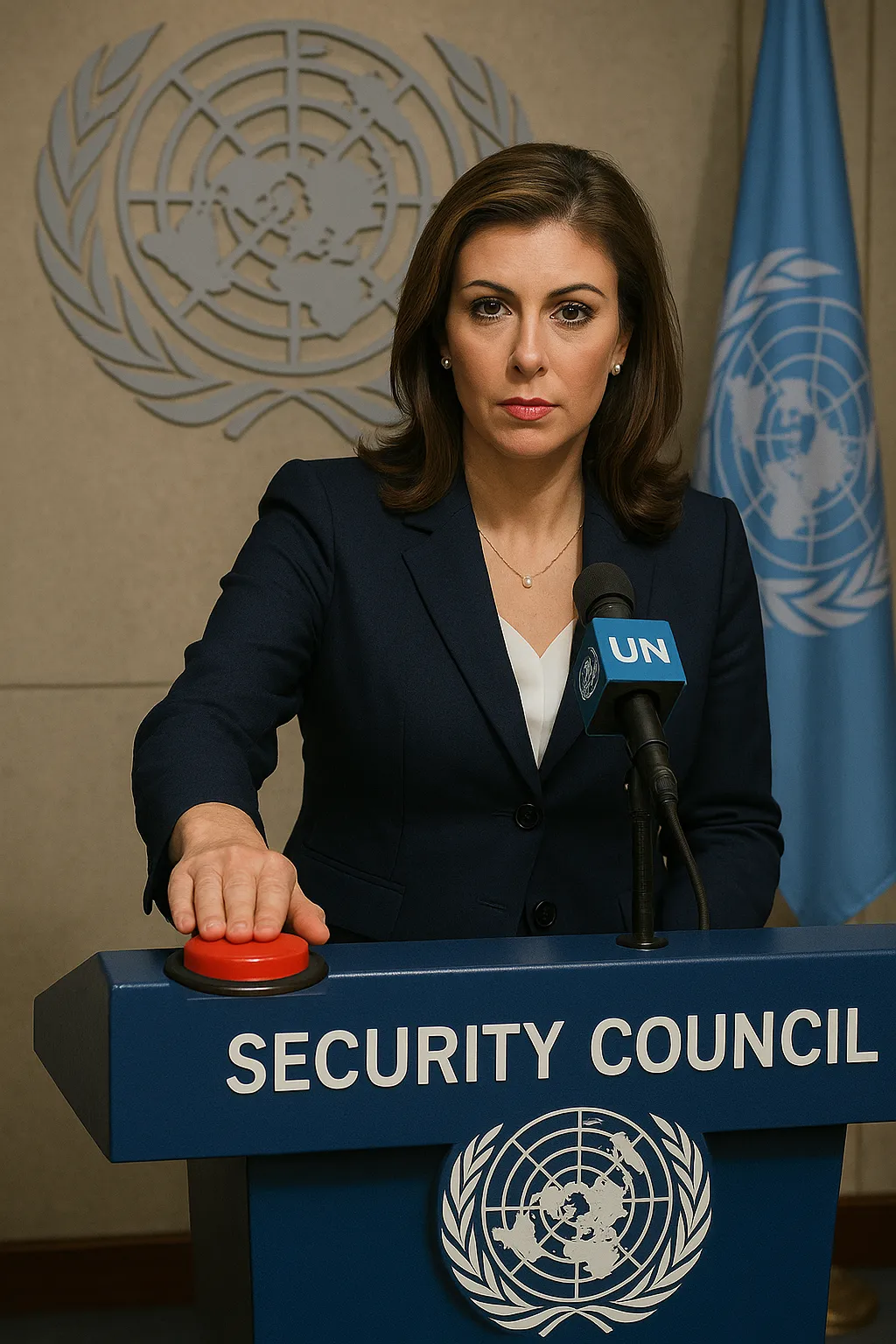Morgan Ortagus Blocks UN Ceasefire Resolution

US envoy vetoes draft demanding Gaza truce, accuses council of bias
Lead Morgan Ortagus, U.S. deputy special envoy to the Middle East, cast America’s veto against a UN Security Council resolution calling for an immediate Gaza ceasefire on Friday in New York, criticizing its failure to condemn Hamas and legitimize Israel’s right to self-defense.
Nut Graf Ortagus argued the draft resolution “fails to condemn Hamas or recognize Israel’s right to defend itself,” insisting that a true end to the fighting hinges on the unconditional release of hostages and Hamas’s disarmament. Her intervention underscores Washington’s unwavering support for Israel amid mounting global calls for humanitarian relief.
Key Developments
- Resolution vote: 14 in favor, 1 against (US veto)
- Demand: immediate, unconditional and permanent Gaza ceasefire
- Hostage clause: release of all captives held by Hamas and allied groups
- US stance: vetoes performative actions lacking balance and accountability
Background and Reactions The draft text, championed by the council’s ten non-permanent members, described Gaza’s humanitarian crisis as “catastrophic” and urged Israel to lift aid restrictions. Ortagus warned that adopt-and-veto tactics undermine genuine diplomatic progress. Algeria’s UN ambassador condemned the veto, apologizing to Palestinians for the council’s inaction, while Israel’s envoy defended Washington’s decision as essential to preserving security.
International Implications Friday’s veto marks Washington’s sixth at the Security Council since the Gaza conflict began in October 2023. The move arrives days before the UN General Assembly convenes, where global leaders are expected to debate a two-state solution and humanitarian measures. Critics say the veto intensifies perceptions of US-Israeli isolation on the world stage, while supporters view it as vital to safeguarding allied interests.
Next Steps The Security Council will revisit Gaza during the high-level UNGA session next week. With the humanitarian situation deteriorating-and famine confirmed in parts of Gaza-calls for renewed negotiations are intensifying even as diplomatic stalemate persists.
Categories
Autos and vehicles Beauty and fashion Business and finance Climate Entertainment Food and drink Games Health Hobbies and leisure Jobs and education Law and government Other Politics Science Shopping Sports Technology Travel and transportationRecent Posts
Tags
Archives
08/19/2025 (3) 08/20/2025 (40) 08/21/2025 (27) 08/22/2025 (22) 08/23/2025 (4) 08/24/2025 (21) 08/25/2025 (30) 08/26/2025 (24) 08/27/2025 (29) 08/28/2025 (16) 08/29/2025 (9) 08/30/2025 (13) 08/31/2025 (17) 09/01/2025 (167) 09/02/2025 (124) 09/03/2025 (149) 09/04/2025 (112) 09/05/2025 (72) 09/06/2025 (169) 09/07/2025 (162) 09/08/2025 (150) 09/09/2025 (176) 09/10/2025 (194) 09/11/2025 (194) 09/12/2025 (186) 09/13/2025 (207) 09/14/2025 (159) 09/15/2025 (175) 09/16/2025 (198) 09/17/2025 (196) 09/18/2025 (196) 09/19/2025 (207) 09/20/2025 (129) 09/21/2025 (4)